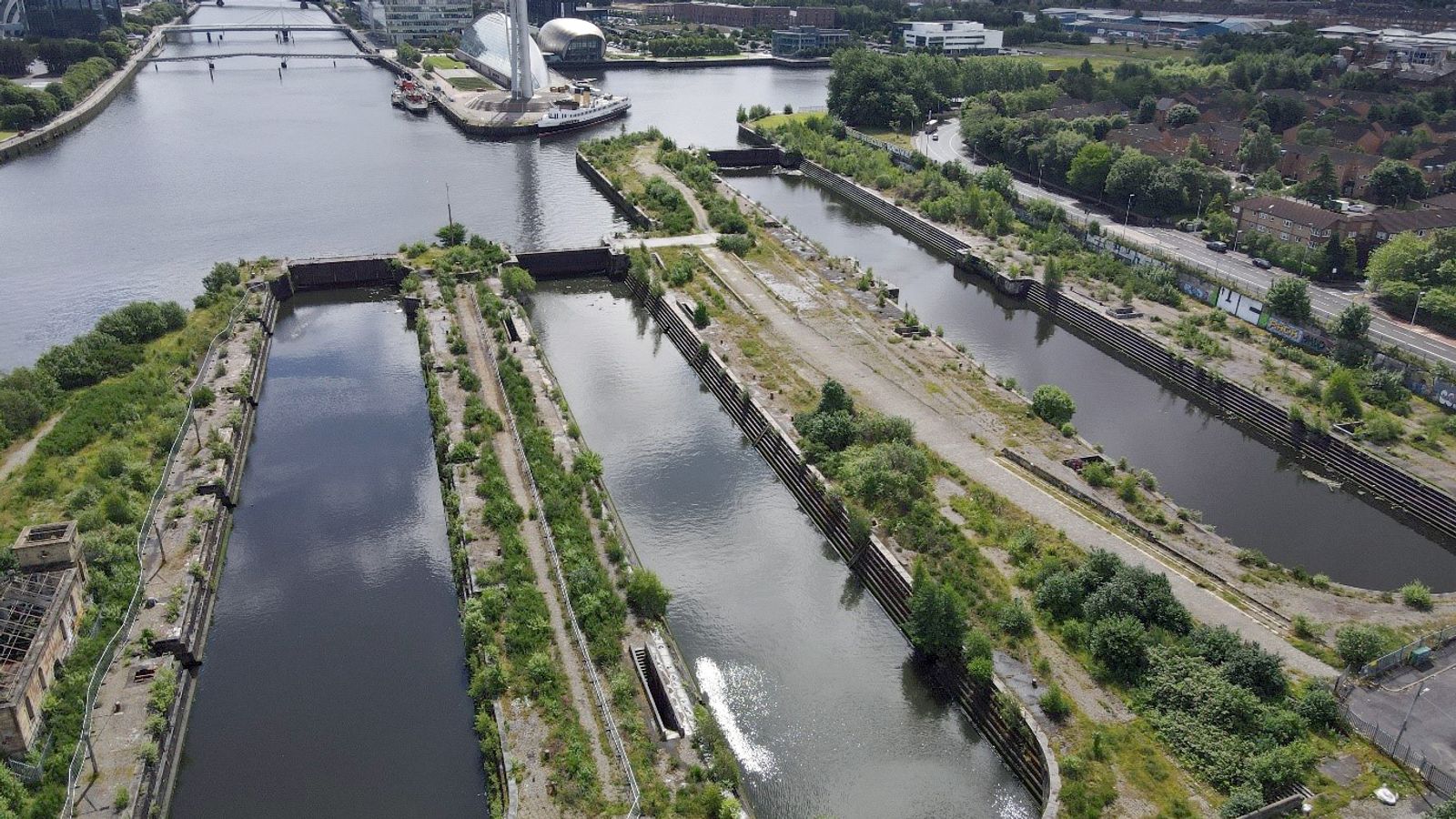Plans have been submitted to transform historic dry docks – which had a starring role in a hit Hollywood film – into a neighbourhood with hundreds of new homes.
Govan Graving Docks, once at the heart of Glasgow’s shipbuilding industry, were previously used for the final painting and repair of vessels but have lain empty for almost 40 years.
In 2019, Oscar-winning director Sam Mendes used the derelict docks to film several scenes of his First World War drama 1917.
The site is at the centre of a masterplan to bring new life to the area and the three docks.
New City Vision – which is leading the regeneration – and architects O’DonnellBrown have lodged plans for up to 304 new homes on the southern boundary of the site.
The homes will take up 20% of the overall site footprint, with New City Vision pledging that the remaining 80% will be transferred to community ownership on the “completion of the regeneration vision”.
The Scottish government has already granted £2.4m to help transform the site into a green space.
Work is currently under way to reopen Dock No1 for historic ship repair.
There are also future plans for a heritage park, and it is hoped the old pumphouse – the sole remaining building on the site – can be transformed into a thriving visitor attraction.
The planning application for the housing development was submitted to Glasgow City Council in December, with a decision expected in spring.
Read more from Sky News:
Hulk Hogan rescues teenage girl from car crash
Police raid on ‘wrong house’ left sick baby with burns, mum claims
Be the first to get Breaking News
Install the Sky News app for free
Harry O’Donnell, chairperson of New City Vision, described the application as a “milestone”.
He added: “As this proposal has been the subject of extensive community consultation over the past two years, I would like to thank all those who have provided feedback throughout the consultation process, and I look forward to continuing this engagement as we bring forward our proposals for the component parts of our wider vision.”






